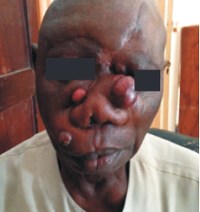Modified Dental Anxiety Scale and its Psychometric Properties in an Adult Population in Port Harcourt, Rivers State, Nigeria
Main Article Content
Abstract
Background: The validation of an instrument is necessary before it can be introduced for use in any community. The aim of the study was to evaluate the psychometric properties of the Modified Dental Anxiety Scale in an adult Nigerian population and to assess the validity and internal consistency of the measure.
Methods: The Modified Dental Anxiety Scale questionnaire was administered to 160 University students. Data were analyzed using Statistical Package for Social Sciences version 20.0 and means compared using Student t-test and analysis of variance. The internal consistency of MDAS was established using Cronbach’s alpha.
Results: Of the 160 participants, 50.6% (81) were male and 49.4% (79) were female. The prevalence of dental anxiety (MDA score ≥ 19) was 21.2% (34). This was higher in females (11.2%) than in males (10%). Respondents were most anxious about having their tooth drilled. The Cronbach’s alpha for each of the MDAS item ranged from 0.695 to 0.872 with an overall average of 0.79. The average inter-item correlation was 0.63, which was satisfactory. The total mean MDA score was significantly (P= 0.024) higher in females 14.95 (±4.54) than in males 13.27 (±5.00). Regarding age, there was statistically significant decrease in mean MDA score with age (P = 0.033).
Conclusion: MDAS showed good psychometric properties with satisfactory face and content validity, excellent completion of scale items as well as good internal consistency in adult population in Port Harcourt, Nigeria.
Downloads
Article Details
Section

This work is licensed under a Creative Commons Attribution-NonCommercial-NoDerivatives 4.0 International License.
The Journal is owned, published and copyrighted by the Nigerian Medical Association, River state Branch. The copyright of papers published are vested in the journal and the publisher. In line with our open access policy and the Creative Commons Attribution License policy authors are allowed to share their work with an acknowledgement of the work's authorship and initial publication in this journal.
This is an open access journal which means that all content is freely available without charge to the user or his/her institution. Users are allowed to read, download, copy, distribute, print, search, or link to the full texts of the articles in this journal without asking prior permission from the publisher or the author.
The use of general descriptive names, trade names, trademarks, and so forth in this publication, even if not specifically identified, does not imply that these names are not protected by the relevant laws and regulations. While the advice and information in this journal are believed to be true and accurate on the date of its going to press, neither the authors, the editors, nor the publisher can accept any legal responsibility for any errors or omissions that may be made. The publisher makes no warranty, express or implied, with respect to the material contained herein.
TNHJ also supports open access archiving of articles published in the journal after three months of publication. Authors are permitted and encouraged to post their work online (e.g, in institutional repositories or on their website) within the stated period, as it can lead to productive exchanges, as well as earlier and greater citation of published work (See The Effect of Open Access). All requests for permission for open access archiving outside this period should be sent to the editor via email to editor@tnhjph.com.

